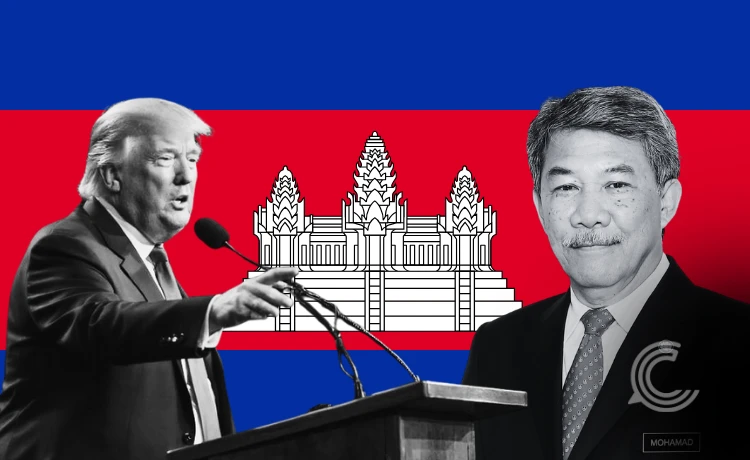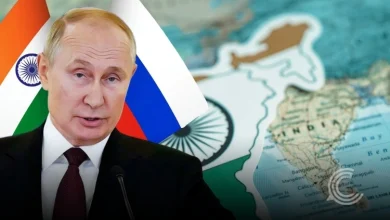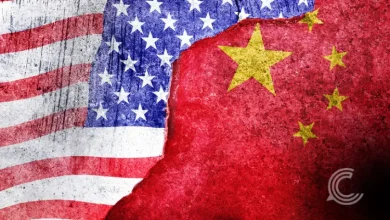Trump to Oversee Cambodia-Thailand Peace Deal at ASEAN Summit

Key Highlights –
- U.S. President Donald Trump will witness the signing of the Cambodia-Thailand peace agreement at the ASEAN Summit in Kuala Lumpur.
- The accord includes the withdrawal of heavy artillery and landmines and deployment of ASEAN observers to ensure a lasting ceasefire.
- The deal marks a major diplomatic success, addressing long-standing border tensions and reinforcing U.S. and ASEAN roles in Southeast Asian peacekeeping.
U.S. President Donald Trump is scheduled to attend the 47th ASEAN Summit in Kuala Lumpur from October 26 to 28, where he will be overseeing the signing of a peace agreement between Cambodia and Thailand. The deal, known as the Kuala Lumpur Accord, aims to resolve longstanding border disputes and establish a lasting ceasefire between the two nations.
Roots of the Conflict
The border between Cambodia and Thailand spans over 800 kilometers and has been a source of tension for decades. In July 2025, the dispute escalated into a five-day conflict that resulted in at least 48 deaths and displaced hundreds of thousands of civilians, according to Reuters.
The conflict stems from a discrepancy between the 1904 Franco-Siamese treaty, which aimed to set the border along the natural watershed line, and a subsequent 1907 map drawn by French colonial surveyors that placed the temple firmly inside Cambodian territory. In a landmark 1962 decision, the International Court of Justice (ICJ) ruled in favour of Cambodia, awarding it sovereignty over the temple site. However, as noted by The Economic Times, Thailand continued to dispute the ownership of the surrounding 4.6 square kilometers of land, leading to recurrent hostilities.
Also Read | US Sanctions China Refinery, Vessels Over Iran Oil Trade
Diplomatic Efforts and Trump’s Role
Malaysian Prime Minister Anwar Ibrahim, serving as the current ASEAN chair, played a pivotal role in mediating the ceasefire. US President Trump also engaged in diplomatic efforts, including phone calls to both Cambodian Prime Minister Hun Manet and Thai officials, urging them to seek a peaceful resolution.
Furthermore, the Kuala Lumpur Accord, facilitated by Malaysia and the U.S., includes provisions for the withdrawal of heavy artillery and landmines from the border areas, as well as the establishment of ASEAN observers to monitor the ceasefire, as per reports by AP News.
Recent Escalation and Humanitarian Toll
Tensions have flared violently in the past, notably between 2008 and 2011, when the dispute escalated following Cambodia’s successful bid to have the Preah Vihear Temple listed as a UNESCO World Heritage Site.
The situation reached a critical point earlier this year, leading to the latest round of intense fighting. Tensions first flared in May 2025 when a Cambodian soldier was killed. Escalating further into rocket and artillery exchanges. The conflict intensified dramatically in July 2025, becoming the “worst fighting since the dispute began,” as reported by Britannica, and was not limited to the temple area, but spread to other disputed zones.
The five-day conflict in July resulted in at least 48 deaths and displaced hundreds of thousands of civilians, as reported by Reuters. This humanitarian catastrophe lent urgency to the diplomatic push that culminated in the forthcoming accord.
Significance of the Peace Agreement
The signing of the Kuala Lumpur Accord is seen as a significant achievement in regional diplomacy. It not only addresses the immediate security concerns between Cambodia and Thailand but also sets a precedent for conflict resolution in Southeast Asia. The involvement of the U.S. underscores its commitment to supporting peace and stability in the region.
The ASEAN Summit, attended by leaders from Southeast Asia and other global partners, provides a platform for discussing broader issues affecting the region, including economic cooperation, security, and environmental challenges.
The successful signing of the Kuala Lumpur Accord is anticipated to not only secure the Cambodia-Thailand border but also establish a critical precedent for how deep-rooted territorial disputes in the region, including those in the contentious South China Sea, might be managed and resolved in the future.



